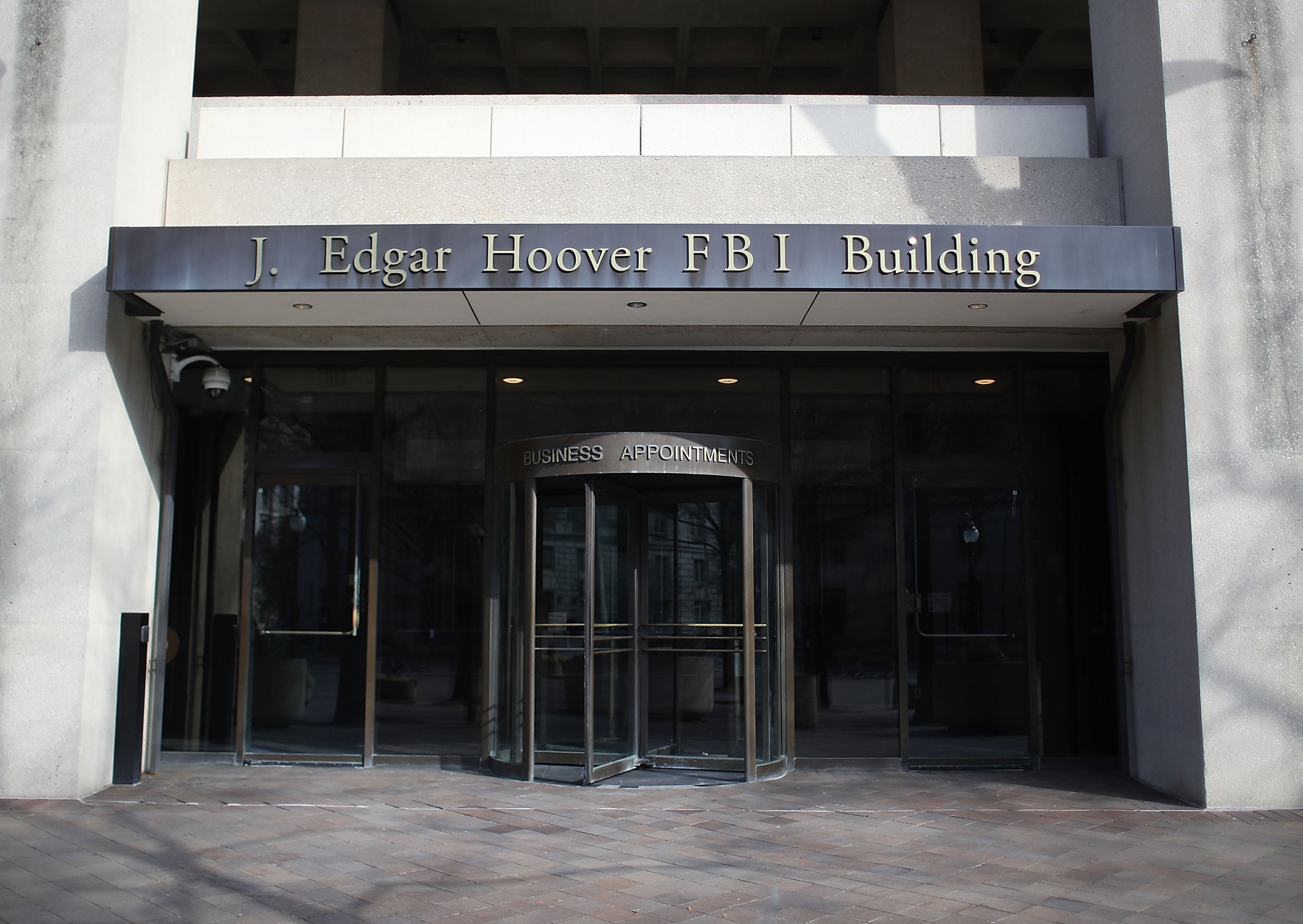
For over two decades, students of the spy wars between Russia and America have pondered one of the great remaining mysteries of the Cold War: Who finally dimed out Robert Hanssen, the FBI turncoat said to be the most destructive traitor in the annals of U.S. intelligence?
Now we know, according to an posthumously published book by the late David Wise, the authoritative espionage writer who died from pancreatic cancer last month. The informant, Wise writes, was Alexandr Shcherbakov, a down-on-his-luck former KGB officer who delivered the Kremlin's dossier on Hanssen to an FBI counterspy who had pursued the case for years.
It was a handsome payday for Shcherbakov, now resettled under protection in this country: Wise's book, released only in audio form in mid-October, calls him The Seven Million Dollar Spy. With Wise dead, no advance copies available and no hardcover in the stores, the normally best-selling author's book has escaped attention until now.
Hanssen, a disgruntled senior FBI computer geek who spied intermittently for the Russians from 1979 until his arrest following a dead drop in the snowy woods of Virginia in 2001, produced "possibly the worst intelligence disaster in U.S. history," according to a later damage report.
Charged with helping the FBI ferret out Russian moles, Hanssen was not only privy to some of the most sensitive secrets in U.S. intelligence, he was in position to steer suspicion away from himself. Nicknamed "the mortician" by snickering colleagues for his dark suits and dour demeanor, Hanssen ''betrayed an astonishing 50 human sources or recruitment targets" of the FBI and CIA, a number of whom were executed, according to Wise. He also gave the Russians top secret details about a U.S. electronic spying program and progress reports on a tunnel the FBI was digging under the Russian embassy in Washington, D.C. , among other secrets.
Faced with the mounting loss of its agents in Russia in the 1980s, U.S. counterspies first zeroed in on Aldrich Ames, an alcoholic CIA turncoat in the bowels of the CIA's Soviet division. When other losses couldn't be explained by Ames's perfidy, they renewed their mole hunt and fixed on another CIA operative, Brian Kelley, whose life and career were upended until Hanssen was caught.
Years passed. The FBI refused to believe one of its own could go bad.
The trail to Hanssen eventually sprung from a post-Cold War business partnership between Jack Platt, a legendary former CIA officer, and Gennady Vasilenko, a former KGB spy whom Platt had tried, and failed, to recruit over the years. As vividly told in another new book that touches on the Hanssen case, Best of Enemies: The Last Great Spy Story of the Cold War, the rivals' mutual admiration blossomed into a deep friendship. After the Soviet Union collapsed in 1991, they went into business together in a security services company that won Russian clients. Eventually, Vasilenko hired another KGB officer to work in the Moscow office, whom Best of Enemies co-authors Gus Russo and Eric Dezenhall call Anatoly Stepanov.
In reality, it was Shcherbakov, according to Wise, who began writing about the CIA in 1960.
Russo and Dezenhall had planned to name Shcherbakov, too. But they swapped his name out for a pseudonym at the last minute because they feared for his safety, Russo told Newsweek. Only months earlier, Russian agents had been implicated in a nerve-agent assault on Sergei Skripal, a defector living in England. It was the latest in a long string of attacks on defectors and dissidents, allegedly with the approval of Russian President Vladimir Putin, himself a former KGB officer. Last summer Kremlin hit squads were reported to be pursuing defectors living in the U.S.
"After Skripal was poisoned, and other [Vladimir] Putin retributions, and after a conference with the publisher, we decided we didn't want to add to the jeopardy he was already in," Russo told Newsweek. "Also, our sources asked us to not reveal the name for the same reason."
"I am sure we could could have gotten major news attention had we have given him up," Russo added, "but we don't regret the decision."
Shcherbakov defected to the U.S. in 2010, lured in a convoluted operation quarterbacked by veteran FBI mole-hunter Mike Rochford, according to both books. In an extraordinary move, Putin publicly fingered Shcherbakov for ratting out a ring of Russian "illegals" living as Americans in the U.S., including the infamous Anna Chapman, and threatened to assassinate him. (Adding to the mysteries, yet another new book on the mole wars, The Skripal Files: The Life and Near Death of a Russian Spy, by BBC journalist Mark Urban, says another defector, Alexander Poteyev, not Shcherbakov, outed the illegals.) But the Kremlin never tied Shcherbakov—at least publicly—to the Hanssen disclosure.
Says Russo: "We were 99 percent certain that the SVR [the successor to the KGB's foreign spying arm] knew he was the guy, but we didn't want to add to their certainty." With Russian goons on the loose, Shcherbakov has to be careful about how he spends his great windfall.
Indeed, the 30-year mole war isn't over, at least for some former CIA officers. Milton Bearden, who once headed the agency's Soviet division, has long believed there's yet another Russian mole who escaped detection.
"He would be pretty long in the tooth about now," Bearden told Newsweek. "In his eighties or in his grave." Some say the CIA has stopped looking, preferring to sweep such an embarrassment under the rug. But to others, the mole wars will never end.
This story has been updated with a claim in another new book that a different defector, not Shcherbakov, outed Russian illegals to U.S. intelligence in 2010.
Uncommon Knowledge
Newsweek is committed to challenging conventional wisdom and finding connections in the search for common ground.
Newsweek is committed to challenging conventional wisdom and finding connections in the search for common ground.
About the writer
To read how Newsweek uses AI as a newsroom tool, Click here.





